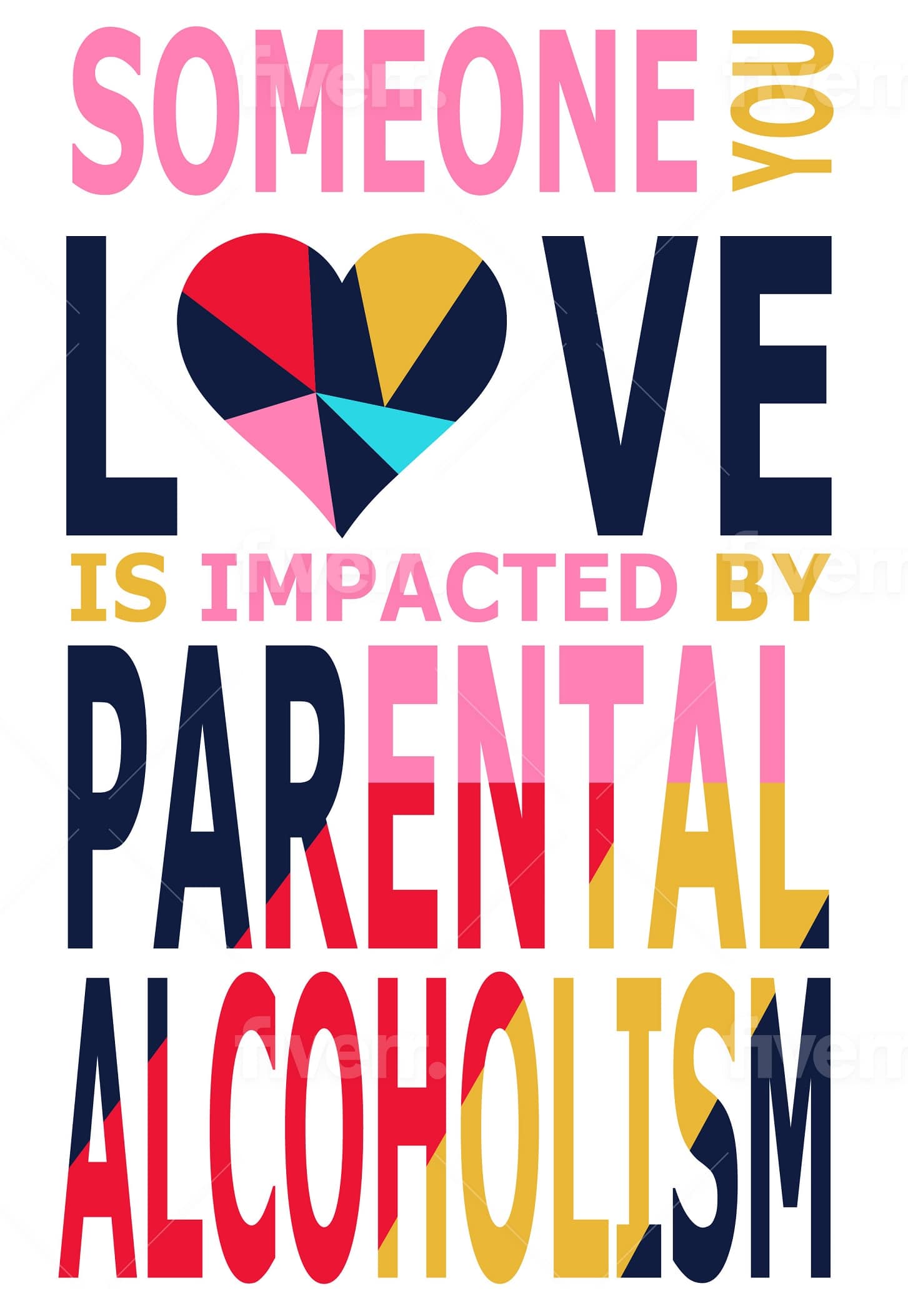"1 in 4 children lives in a family with parental addiction to drugs or alcohol„
Grant, BF. “Estimates of US children exposed to alcohol abuse and dependence in the family.” Am J Public Health, 90(1) (2000): 112-115. doi:10.2105/ajph.90.1.112.

Parallel to the COVID-19 pandemic is the pandemic of domestic violence. The federal government of Australia announced via media release on April 7th, 2021, that it is open to new ideas through public consultation for a violence-free future.
"1 in 4 children is exposed to domestic violence”
Media Release 07 Apr 2021. Prime Minister of Australia, https://www.pm.gov.au/media/australians-invited-help-shape-future-women-free-violence. Accessed 17 November 2021.
Sety, M. “The impact of domestic violence on children: a literature review / report.” The Australian Domestic & Family Violence Clearinghouse, 2011.
Anyone employed in the court system is aware of the staggering percentage of arrestees who meet the criteria for substance abuse. “While the exact rates of inmates with substance use disorders (SUDs) is difficult to measure, some research shows that an estimated 65% percent of the United States prison population has an active SUD. Another 20% percent did not meet the official criteria for an SUD but were under the influence of drugs or alcohol at the time of their crime.”
Criminal Justice DrugFacts. National Institute on Drug Abuse, June 2020, https://www.drugabuse.gov/publications/drugfacts/criminal-justice
Within a population of parents, a significant percentage of them have substance use and mental health disorders. Due to the remarkable correlation between court appearances and substance use disorders, countries such as the United States have established drug courts throughout the country. It is generally known that many of these arrestees, inmates, and parents who lose parental rights are individuals with active addiction and come from homes with alcohol, drug problems, and domestic violence.
Lipari, RN and SL Van Horn. “Children Living with Parents Who Have a Substance Use Disorder.” The CBHSQ Report, 24 August 2017, https://www.ncbi.nlm.nih.gov/books/NBK464590/
Stambaugh, LF et al. “Prevalence of serious mental illness among parents in the United States: results from the National Survey of Drug Use and Health, 2008-2014.” Ann Epidemiol, 22 Dec 2016, doi: 10.1016/j.annepidem.2016.12.005.
My research in the areas of addiction, abusive behavior, and family law made me aware of something that I call Multigenerational Trauma Transfer. Multigenerational trauma occurs when trauma is passed down to subsequent generations by those who directly experienced an incident. Transfer of multigenerational trauma happens when the family law system applies the pro-contact ideology for families with addiction, abuse and/or domestic violence without installing legal boundaries such as supervised visitation by highly trained professionals. The pro-contact ideology works well in divorce cases where addiction and abuse do not exist; however, when addiction plays a role, the effectiveness of the pro-contact ideology is minimized. Unfortunately, in these situations, courts typically wait until a traumatizing event happens before protecting the children.
In alignment with the pro-contact ideology, the presumption is that the best interest of the child is upheld when both parents hold equal-shared parental responsibility. This may very well apply to families where a culture of healthy relationships pre-exists prior to and beyond divorce. However, conscious uncoupling and naturally ending marriages in a dignified manner are not the norm. In addition, such divorces typically don’t need to be managed by courts, as they are primarily handled by mediators and certified coaches. Furthermore, this presumption does not allow individualized, specific handling of a legal case, which is essential for a better future. Conscious uncoupling, characterized by an individual’s ability to understand that every irritation and argument within their marriage was an opportunity to look inside themselves and identify a negative internal object that needed healing, is unarguably impossible in relationship dynamics where active addiction is present.
Current family law systems allow a couple to divorce but may order children to see or live part-time with their addict/abusive parent, or even worse, order children into full-time custody of an addict/abusive parent. The fact that family law judges may still order children to see or live part-time with their addict/abusive parent, even when the kids or the victim parents have openly disclosed abuse and have had their testimony corroborated by third parties, is extremely endangering for our society. The alarming increase in alcoholism, SUDs, and domestic violence numbers speaks to the fact that our societal wellbeing, health, and integrity are massively endangered. There’s a serious and overlooked health crisis that will continue to grow exponentially if we don’t understand the importance of stopping multigenerational trauma transfer. However, multigenerational trauma could be reduced significantly through the implementation of new laws and legal tools.
Currently, parental rights outweigh children’s rights.
Law should support the parents who want to and are able to prevent their children from trauma.

A recovering/victim parent (recovery from co-addiction to a partner in active addiction, victim to an abusive partner) asking for their children’s protection from a violent/substance-abusing parent confronts a court system without the necessary education and legal tools to ensure a child’s safety and integrity. As a result, current law systems are responsible for multigenerational trauma transfer. It is often seen that when a recovering/victim parent leaves the addict/abusive parent, the child replaces the recovering/victim parent in their former family role. Furthermore, victim parents who are subjected to coercive control by their partners are at great risk of losing custody over their children, as many of them have been thrown so far off balance because of their relationship with an intoxicated/abusive partner. No one takes into account that the intoxicated/abusive partner is the one who is deeply unwell, projecting mental illness onto the victim parent.
All too often, victim parents are successfully portrayed as mentally ill, to the degree that they end up believing that there’s something so terribly wrong with them; they then give up their parental rights, defeated by an addict/perpetrator parent. It is also arbitrarily assumed by the family law courts that infants want close contact with both parents. While scientists keep finding out more about infants’/children’s cognitive abilities and encourage age-appropriate information, courts override children’s wills and decide against their wellbeing.
1 in 4 children lives in a family with a parent who is addicted to drugs or alcohol. A parent with a SUD is three times more likely to physically or sexually abuse their child.

Although family system healing is possible, it is known among specialists that zero tolerance and no compliance is required when a family member is going through the process of lovingly disengaging from the family member with the SUD. Children are often not included in family therapy, depending on their age. While experts suggest age-appropriate information for children, family law courts order children – the family members with the least information and the ones still developing their cognitive abilities – to spend time with their addict/abusive parents. The legal system unknowingly keeps alcoholism alive.
As such, it is an understatement to say that children suffer many of the consequences of their parent’s actions, including the effects of substance use and/or mental health disorders. The critical thing for justice systems to understand is that children don’t just witness incidents of intoxication and domestic abuse. Their development is shaped by the addict/abusive dynamic.
Because family law is dangerously ambivalent and inconsistent, a significant number of children are ordered to regress in trauma. Some children are forced to see a therapist as determined by a child protection agency order, yet they remain silent out of fear that speaking their truth could end up harming them even more. They might even have been warned by their parent’s lawyer that, unless some contact with the addict/abusive parent is allowed, the recovering/victim parent could lose custody altogether. The recovering/victim parent is de facto forced to co-operate with what is advised by the child protection agency, which is strongly upholding the pro-contact ideology.
Family law transformation is absolutely necessary if we want to put an end to multigenerational trauma transfer and stop exponentially increasing numbers of alcoholism, drug abuse, domestic violence, and femicide.
